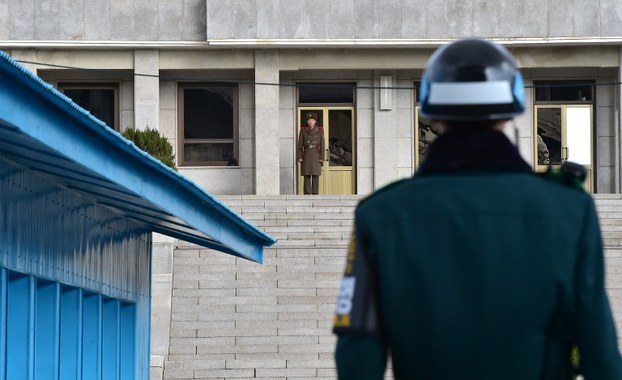




Recent reports leave little doubt: relations between the two Koreas, so tense for years, now show signs of improvement. Seoul and Pyongyang have exchanged reconciliatory gestures and expressed their willingness to talk. There is even a rather high probability that the third intra-Korean summit will happen in near future.
But here rises a question: why do North and South want improvement in their relations? No doubt, the politicians themselves will react to such a question in a predictable way, citing the “need for reconciliation” and “desire to maintain peace.” It is all well and good, but why did these laudable and lofty desires, dormant for years, begin to determine policy right now? It goes without saying that political decisions are dictated by the needs of the interested parties, not by some lofty considerations. If this is the case, what are the considerations behind the recent thaw in the hitherto frosty Seoul-Pyongyang relations?
As the saying goes, it takes two to tango—and indeed, both sides have valid reasons to improve relations.
Seeking money
For the North, this is, above all, a question of money. Kim Jong Un’s government recently initiated a chain of cautious reforms, and the first results appear to be encouraging. However, in order to speed economic development and get some vital support for infrastructure projects, North Korea needs foreign aid and foreign investments. For a long time, China has been the major provider of such aid and investment, but since 2013 relations between Pyongyang and Beijing have deteriorated significantly. Facing this new situation North Korea needs a country which can replace China as a possible source of money.
For a brief while, North Korean diplomats pinned their hopes on Russia. They obviously hope that Russia’s increasingly tense relations with the West will turn it into a supporter of North Korea, whose anti-American rhetoric is second to none. However, these hopes were exaggerated from the beginning: Russia might engage in mutually profitable trade, but it has no intention of showering North Korea with aid or investing large sums in long-term, risky projects. The probability of Russia’s involvement decreased even further when the collapse of world oil prices led to the significant deterioration of Russia’s economic situation.
Attempts to improve relations with Japan also ended in naught. The issue of Japanese citizens abducted by North Korea decades ago, the major problem poisoning relations between the two countries, is notoriously difficult to sort out. Moreover, the complicated international situation in Northeast Asia makes Japan reluctant to undertake steps which the United States disapproves of. This means any North Korean negotiations with Japan are stuck.
This leaves North Korean decision makers little choice but to seek engagement with the South. South Korea seems to be the only country which now has both the will and capacity to invest in the North and provide it with considerable economic assistance. Hence, the ‘charm offensive’ of North Korea.
Appearance of stable relations
Admittedly, the South also has its own reasons to express interest in North Korea's advances. Contrary to what many outsiders tend to believe, the North Korean issues are marginal in South Korean politics. Nonetheless, it helps a South Korean president (as well as his or her party) if relations with North Korea appear stable and sound. This is what South Korean voters want.
Of course, there is an important caveat. The South Korean voters do not like tension and conflict, but they are also quite unwilling to approve significant money transfers to the North. They want better relations, but they do not understand one simple, if cynical, truth: if a foreign power wants better relations with North Korea, it is vital to reward Pyongyang financially. So, it remains to be seen how the South Korean public will react if the amount of aid becomes significant. There are good reasons to believe that many South Koreans will be unhappy, even though such unilateral generosity might make perfect political and strategic sense.
In this environment one should probably expect that the South Korean government will move cautiously. They will try to provide North Korea with enough aid to ensure its peaceful behavior, but they will not ship too much aid, since excessive generosity will annoy the South Korean public and instead of boosting the government popularity, will damage it. Still, such cautious and conditional support is possible, and there is a good chance that the North Korean side will accept it. At least this is what we should hope for: peace and cooperation, however imperfect and fragile, are clearly better than hostility and violence.
Andrei Lankov, a professor at Kookmin University in Seoul, is a Russian historian, North Korea expert, and regular RFA contributor.